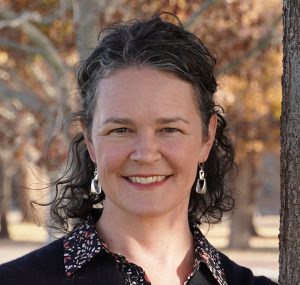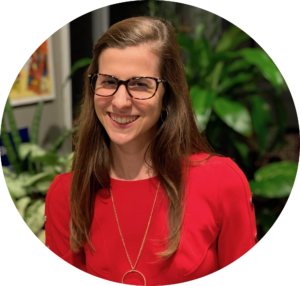This Spring CERCLL will be offering two series of webinars for language educators. Each series consists of two free webinars, but we invite you to attend any number of these events. The webinars will be 90 minutes in length and participants who attend live can request a certificate of attendance for 1.5 hours of professional development. Participants in the live events requiring digital badges will be emailed after each webinar with information about how to apply to receive one.
Series 1: Multi-Modal Literacies in Second Language Classrooms
Exploring Multimodal Literacies through the Linguistic Landscape in the L2 Classroom
Wednesday, March 3 2021, 10-11:30AM (Arizona)
Presented by Sebastien Dubreil, Professor of French and Francophone Studies, Second Language Acquisition and T,echnology-Enhanced Learning at Carnegie Mellon University.
In this workshop, participants will become familiar with the fundamentals of work in the linguistic landscape and will examine how it can be leveraged to address several of the perennial challenges faced by L2 classroom instructors. Indeed, the LL is a site that necessitates attention to meaning, form, use, and cultural interpretation (meaning learners engage with both “language” and “content” simultaneously). Second, through judicious use of the physical environment and instructional technology, teaching the LL can make the second language and culture present and alive for the learners. Third, LL projects also have the potential to engage L2 learners with their own communities. Last, as an inherently interdisciplinary field LL-based pedagogies afford L2 instruction the opportunity to establish connections beyond language studies. Examples of such work will be provided and participants will be guided to envision how these principles can be adapted in their own practice to enhance language and culture learning.
Reading Multimodally: Guiding L2 Learners to Interpret Everyday Web Texts
Wednesday, April 7, 2021, 4-5:30PM (Arizona)
Webinar presented by Kristen Michelson, Assistant Professor of French and Applied Linguistics at Texas Tech University.
Contemporary communication and literacy practices increasingly occur in virtual spaces where texts are inherently multimodal. Yet, research and practice in second language (L2) reading lags behind everyday literacy practices by focusing primarily on linguistic modes of communication while underplaying the role of other semiotic modes in texts. In this webinar we will explore reading as a way of encountering second language cultural practices and perspectives. Participants will learn strategies for: 1) finding and curating authentic multimodal texts around specific cultural themes, 2) adapting and using frameworks for engaging students in reading multimodal texts, and 3) incorporating multimodal reading in the L2 classroom in tandem with language learning objectives.
Series 2: Intercultural Communication in the L2 Classroom
Vlogging Abroad: L2 Multimodal Composing for Language Learning and Cultural Reflection
Saturday, May 8, 2021, 10-11:30AM (Arizona)
Presented by Natalie Amgott, a doctoral candidate in Second Language Acquisition and Teaching at the University of Arizona.
In this webinar, postsecondary instructors and administrators of world languages will learn how to leverage multimodal composing for language learning and cultural reflection in study abroad contexts. A brief overview of how multimodal composing has been applied to EFL and ESL contexts will highlight how multimodal projects support academic learning (Pacheco et al., 2017), self-reflection (DeJaynes, 2015), and multilingual identities (Cummins et al., 2015). Amgott will then illustrate how the findings in EFL and literacy research can be translated to the postsecondary study abroad arena.
Attendees will learn about the importance of modeling and scaffolding for fostering engagement and access to full multilingual and multimodal repertoires through multimodal composing (Pacheco & Smith, 2015; Smith et al., 2017) and discuss how multimodal and technological workshops can be coupled with discussion of the vlog genre in order for students to reflexively explore their study abroad environment. After this session, attendees will be able to apply their understanding of multimodality and their course context(s) to encourage students to use multimodal vlogging to reflect on cultural and socioemotional experiences, to develop metalinguistic awareness, and to promote goal-setting and accountability in the language learning community.
Teaching Languages for Intercultural Citizenship and Social Justice
Wednesday, May 26, 2021, 10-11:30AM (Arizona)
Webinar Presented by Manuela Wagner, Professor in the Department of Literatures, Cultures, and Languages at the University of Connecticut.
In this webinar we start by reflecting on connections between teaching languages and preparing our students for the challenges they (and we as a society) face (see UN global issues). Questions include: What should students learn in and take away from language education? Should language education go beyond the goal of teaching language proficiency? If so, what are some objectives language education can realistically pursue? Together we will reflect on the increasing demand for students to learn how to engage in intercultural dialogue, as evidenced by national and international initiatives to include intercultural competence (IC) in education in meaningful ways (e.g., ACTFL, Council of Europe, PISA assessments 2018).
Wagner will introduce some examples in which the models of Intercultural Communicative Competence (ICC, Byram, 1997) and Intercultural Citizenship (ICit, Byram, 2008) were applied to help students acquire the knowledge, skills, and attitudes needed to engage in intercultural dialogue and solve problems together. Through interactive activities, participants will 1) discuss and reflect on the role of culture and ICC and ICit in language education, 2) discuss the implementation of models of ICC in sample activities, and 3) come up with connections to their own teaching. Participants will think about possible challenges and concerns regarding this way of teaching. Challenges and lessons learned from prior projects will be shared to allow for a beginning conversation about applying this theory to practice in different contexts. Finally, participants will reflect on how this way of teaching is linked to teaching for social justice, anti-racism, and decolonization.

